Radford University
Center for Social and Cultural Research
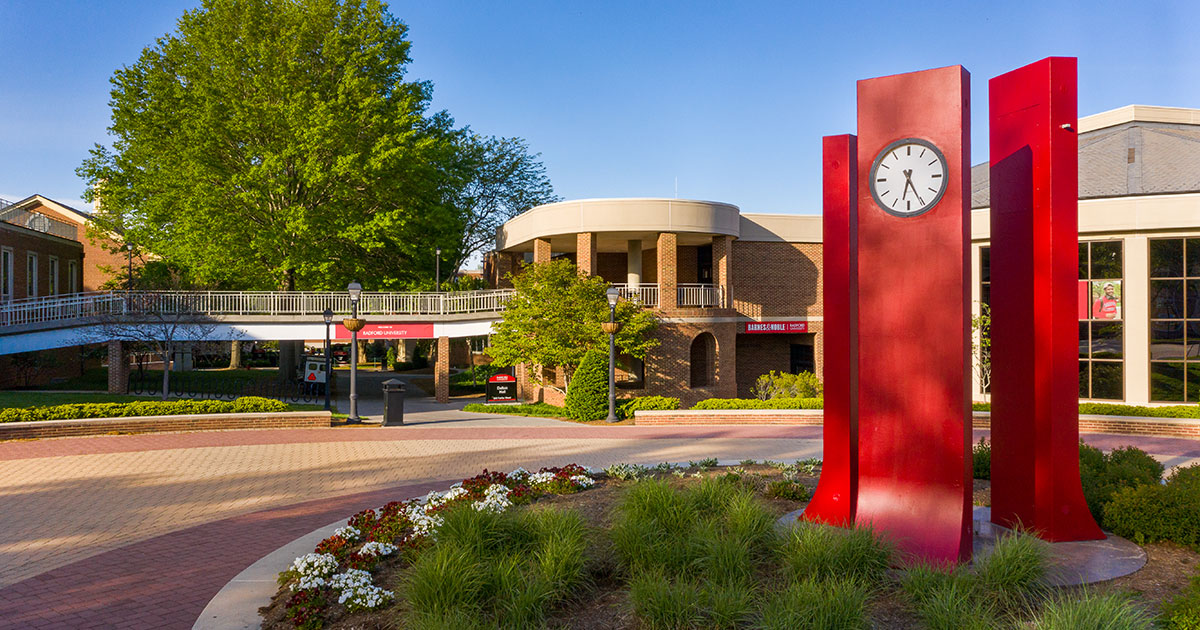
Our mission at the Center for Social and Cultural Research (CSCR): giving students experience in providing sociological knowledge and skills, as well as a professional identity as practicing sociologists; offering social research services for University, community and regional needs; supporting opportunities for scholarly research among the Sociology faculty.
We look forward to working with future community and university partners.
Quick Links
Get Involved with the CSCR
The Center for Social and Cultural Research at Radford University provides students with experience through internships, independent studies and work study positions by applying sociological knowledge and skills, as well as fostering a professional identity as practicing Sociologists.
Along with access to the CSCR computer lab, library and equipment, the CSCR can offer many benefits including applied research experience, ethics training, as well as specialized research training in the form of webinars, on campus trainings and more.
Student involvement is coordinated by the Director of the CSCR, Morgan Montañez, Ph.D. Inquiries about working for the CSCR should be directed to Dr. Montañez.
The CSCR Staff
At the CSCR we have a team of undergraduate Research Assistants who gain hands-on experience conducting Sociological Research. These research assistants partake in a number of tasks including data management, data entry, data reports and some data analysis, transcription, basic ArcGIS mapping, and qualitative coding. Additionally, each spring we have at least one CSCR Internship. This student works closely with a faculty mentor on an existing project.
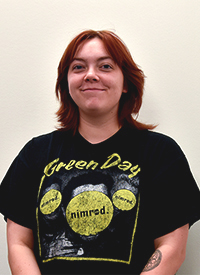
Meet the Staff: Kristina Wagner
Kristina Wagner is the lead research assistant for the CSCR for the 2025-2026 academic year. In their second year in the lab, Kristina brings a wealth of previous experience and leadership skills to the lab. Kristina is a Sociology major and Math minor who is passionate about social justice. Kristina is currently lead on the Virginia 211 project where she is working to formalize analysis procedures and simplify processes students use in cleaning data. Kristina also took a lead on the development of the Radford Housing Survey gaining experience not only in survey design, but also in Qualtrics. Kristina will be in the lab through 2027!
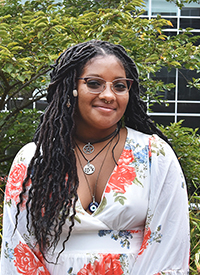
Meet the Staff: Jodi Allen
Jodi Allen (they/them) is a Sociology major with a Music Performance minor. As a senior, they have worked for 3+ years in the CSCR, and in that time have had the opportunity to work on several projects that supplemented their sociological studies. These include survey development and distribution, data collection and analysis monitoring pollution levels in the New River Valley, campus food insecurity research, mentoring students with research and class assignments, transcription work, and more. Through the CSCR, they have also been able to connect with faculty of the Sociology Department and their peer researchers. Jodi anticipates graduation in fall 2025 with a BS in Sociology.
What the CSCR Means to Me: The CSCR has been my second home the entire time I’ve been at Radford, and I don’t mean that lightly. I’ve deeply connected with my peers and other students, and it’s become the ultimate safe space with the Sociology Department right next door, always popping in to see what we’re up to. As a research assistant, I’ve gotten the chance to develop vital skills useful for when I graduate and later further my education! After I find myself somewhere new after Radford, I’ll look back on my time in the CSCR as one worthy of remembering.
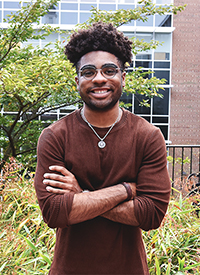
Meet the Staff: Julius Bradley
Julius Bradley (he/him) is a Sociology major and research assistant at the CSCR. He interned in the CSCR in Spring 2025. Julius has worked on secondary data analysis with the Virginia 211 project, survey development with the Radford Housing Survey, and more recently with the National Center for Frontier Communities for whom he is making a database. Julius plans to attend law school someday. In addition to his work at the CSCR Julius is a Resident Advisor, has worked for the Dean of Students Office, and was interim Sociology Club President in Fall 2025.
What the CSCR Means to Me: The CSCR has been a place of community. Not only have I been able to increase my skillset in prep for law school, but to build a network of peers who support
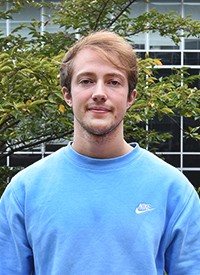
Meet the Staff: Aidan Bridge
Aidan Bridge is beginning their fourth year at Radford University earning their BS degree majoring in Biomedical Science and Chemistry. Originating from the New River Valley and working in periphery medical field positions, such as a certified nursing assistant, emergency medical technician, clinical associate, and scribe, Aidan is passionate about studying the many inequalities presented in rural Appalachia. They are excited to begin their research assistantship with the Center for Social and Cultural Research at Radford University where they will be working with the Virginia 2-1-1 data. Aidan is currently in the process of preparing to apply for graduate programs, where they would like to study medical sociology and publish research on rural topics, such as health literacy, digital divides, and diseases of despair.
What the CSCR Means to Me: The CSCR means a lot to me. Representationally, the CSCR is my shift to studying systemic inequality at the macroscopic level. Academically, working in the CSCR will allow me to earn the foundational skills of collecting, cleaning, interpreting, and presenting social data. Interpersonally, I am excited and fortunate to be working with such an inspirational and dedicated group of people who could only be found right here in the CSCR.
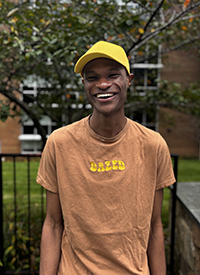
Meet the Staff: Isaiah Moore
Isaiah Moore is a junior aiming to achieve a bachelor’s degree in Sociology, and he plans on graduating in the fall of 2026. This is his first year working with the Center for Social and Cultural Research as a research assistant and he plans on actively engaging in expanding his knowledge and experience regarding sociological research. In this position, he will be assisting a peer by helping them conduct research on housing insecurity and developing a project based on the research findings. He will also be gathering contact information from individuals at HBCUs and compiling them into a database. He will also be assisting with data cleaning and ameliorating his quantitative skills.
What the CSCR means to me: I am thrilled to be working with the Center for Social and Cultural Research to gain hands-on experience and enhance my research capabilities. I also desire to procure knowledge and skills by working attentively with others, understanding their perspectives, and applying the knowledge they are able to supply me with. I’m longing to develop and hone my research skills so that I am adequately prepared for the workforce. I have no doubt that working with the CSCR will equip me with astounding skills: analytical thinking, problem-solving, reasoning, etc. I believe these skills will last a lifetime, and by utilizing them, I will be able to garner academic and career success.
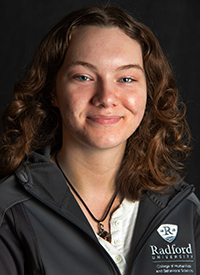
Meet the Staff: Samantha Nowels, Tutor
Samantha Nowels (she/her) is a senior currently working on a BS in Psychology and Sociology, and a minor in Wicked Problems. Expected to graduate in Spring 2026. This is her first semester working as a tutor for the CSCR, where she is excited to learn more within the lab and pass on the knowledge and experience while tutoring. Samantha possesses reliable skills within systems like SPSS, Excel, and Dedoose, as well as descriptive statistics. Samantha is also active through the Sociology Department as a Senior Ambassador, and she looks forward to becoming more involved by working with younger students.
What the CSCR means to me: As a new addition to the lab as a tutor for the Sociological Methods courses (SOCY 380 and SOCY 480), I am very excited to be working as a part of the CSCR, as I enjoy the practice of teaching and tutoring, and believe I can be a good resource for the methods classes. I am extremely grateful for the opportunities to build my skills and experiences that working there will provide for me. I hope to learn as much as possible, as well as continue to assist in building the community within the Sociology Department with faculty, peers, and other students.
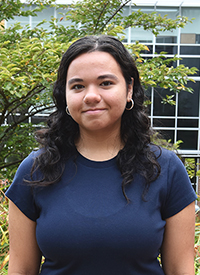
Meet the Staff: Therese Root
Therese Root is a freshman Political Science major with a Geospatial Science minor. This is her first year working with the CSCR. Currently, she is working on the Virginia 211 Project. She has previous experience working with ArcGIS software.
What I’m Looking Forward To: I am excited to have the opportunity to work with the CSCR! I look forward to collaboration and learning from my peers. I am keen to expand my knowledge on using ArcGIS software and get hands-on experience doing sociological research. I aim to build and develop vital research skills that foster critical thinking and analysis.
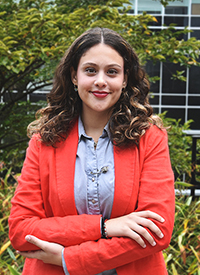
Meet the Staff: Beatrice Souza
Beatrice Souza (she/her) is a senior pursuing a BS in Sociology with minors in Wicked Problems, Social Justice, and Communications who’s anticipating graduating in Spring 2026. This is her first year working as a research assistant with the Center for Social and Cultural Research, where she is eager to deepen her hands-on experience in sociological research. Within this role, Beatrice applies her academic foundation of addressing complex social issues while strengthening her expertise in both qualitative and quantitative methods. She brings proficiency in SPSS for statistical analysis and Dedoose for qualitative data analysis, and she looks forward to contributing to collaborative research projects that merge rigorous methodology with social impact.
What the CSCR Means to Me: As a first-year research assistant, I value the learning opportunities to build and develop the skills that will further my research abilities. Equally as important, I appreciate the sense of community the lab provides, as I am eager to collaborate with both peers and faculty. I know I can learn so much from them while also bringing my own insights to the table! I view the CSCR as a supportive environment where I can grow as a researcher alongside like-minded individuals. Even though I am just beginning, I see this as a chance to be a part of something larger than myself and as a pivotal step within my development as a sociologist. In this lab, I’m able to translate classroom knowledge into real-world research, expand my methodological skills, and begin contributing to meaningful projects.
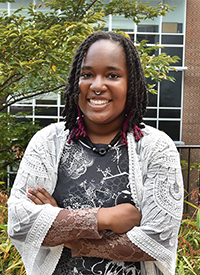
Meet the Staff: Alivia Turner
Alivia Turner (she/her) is a Sociology major, with a Wicked Problems minor. She has previously researched Food Insecurity and Recovery in predominately rural areas, presenting her work at the Annual Rural Sociological Society Conference in Salt Lake City, Utah. She also has an interest in African American Studies, with her previous research being on the legacy of black hair and hair discrimination in the United States. She is currently working with the Food Recovery Network and Sustainability Department on campus to help establish food recovery in Dalton Dining Hall, with recovered food being donated to the Radford-Fairlawn Daily Bread and distributed out to the community. She is currently an independent study student in the CSCR, focusing on qualitative research for the Student Housing Project.
What the CSCR Means to Me: As a new student in the CSCR, I am excited to refine my qualitative skills and gain professional research experience this semester.
Former CSCR Staff:
Olivia Houck
Hannah Lucas
Haley Whorley